Speakers
Previous Speakers
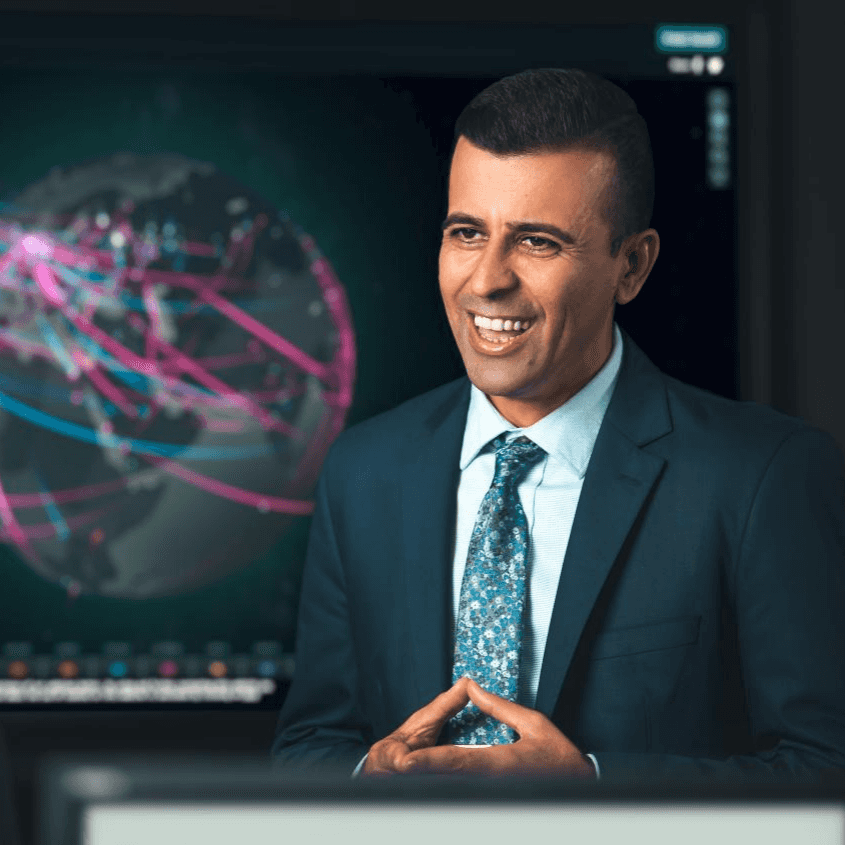
Marwan Omar, Ph.D.
Dr. Omar's Academic career has consistently focused on applied, industry-relevant cyber security, data analytics, machine learning, application of AI to cyber security and digital forensics research and education that delivers real-world results. He brings a unique combination of industry experience as well as teaching experience gained from teaching across different cultures and parts of the world. He has an established self-supporting program in machine learning application to cyber security. He has established a respectable research record in AI and cyber security exemplified in the dozens of published papers and book chapters that have gained recognition among researchers and practitioners (more than 272 Google scholar citations thus far). He is actively involved in graduate as well as undergraduate machine learning education including curriculum development and assessment. Dr. Omar has recently published two books with Springer on Machine Learning and Cyber Security and has also published research with IEEE conference on Sematic Computing. Additionally, Dr. Omar hold numerous industry certifications including Comptia Sec+, ISACA CDPSE, EC-Council Certified Ethical Hacker, and SANS Advanced Smartphone Forensics Analyst. Dr. Omar has been very active academia and the industry and he is currently serving as an associate professor of cyber security at Illinois Institute of Technology.
Title of Speech: Network Forensics

Elisavet Andrikopoulou, Ph.D.
Dr. Elisavet Andrikopoulou is a Senior Lecturer at the School of Computing, University of Portsmouth, United Kingdom (UK). Elisavet holds a PhD in health informatics. She has won several awards including the HDR UK Collaborathon 2020. Elisavet has a computer science and law background as well as a master’s degree in research in simulation modelling. Elisavet has worked in Greece, Germany, Belgium and the UK in a number of positions varying from law apprentice to database administrator and IT consultant. Her current research interests involve healthcare decision making support and improving the quality of life of people with long-term conditions using technology specialising on personal health records. Elisavet is the events and communications lead of healthcare executive group of BCS and a member of IET, and her teaching focuses mainly on data visualisation and data analytics.
Title of Speech: Bridging Gaps in Diabetic Foot Ulcer Care: From Data to Action
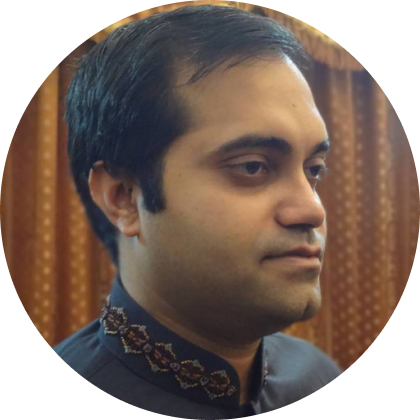
Mian Umer Shafiq, Ph.D.
Engr. Ts. Dr. Mian Umer Shafiq is a PhD holder in Petroleum engineering from Curtin University Australia, and currently working as an Assistant Professor in Chemical and Petroleum Engineering Department at UCSI University. He earned the title of International Professional Engineer from Pakistan Engineering Council (PEC) and Professional Technologist Title from Malaysia Board of Technologist (MBOT). He is the research and MS program coordinator of the department. He also worked previously in Curtin University Malaysia as an Associate lecturer and at NFCIET Pakistan as an Assistant Professor. During his tenure at NFC IET Multan, he assigned the role of Head of Department. He is an active researcher and published more than 20 research publications including various journal papers and book chapters. His research interests include production optimization, Carbon Capture and Storage, Stimulation and Enhanced Oil Recovery. He also won few internal funding and currently supervising 2 PhD students.
Title of Speech: Application of Machine Learning in Petroleum Engineering
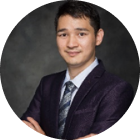
Xinqing Xiao, Ph.D.
Xinqing Xiao an Associate Professor at College of Engineering, China Agricultural University, China. He is also the new young star of the "Talent Cultivation and Development Support Program" of China Agricultural University, and the outstanding graduates of Beijing/China Agricultural University. His main research focuses on smart sensing technologies, which includes the battery-free/self-powered/self-driven smart sensing, flexible smart sensing, smart sensing decision control technologies, etc. He has presided over national, provincial and ministerial projects. He has published more than 60 academic papers at home and abroad as the first or corresponding author, obtained more than 20 national invention patents, and provincial and ministerial science and technology awards, social force science and technology awards.
Title of Speech: Neuromorphic Computing for Smart Agriculture
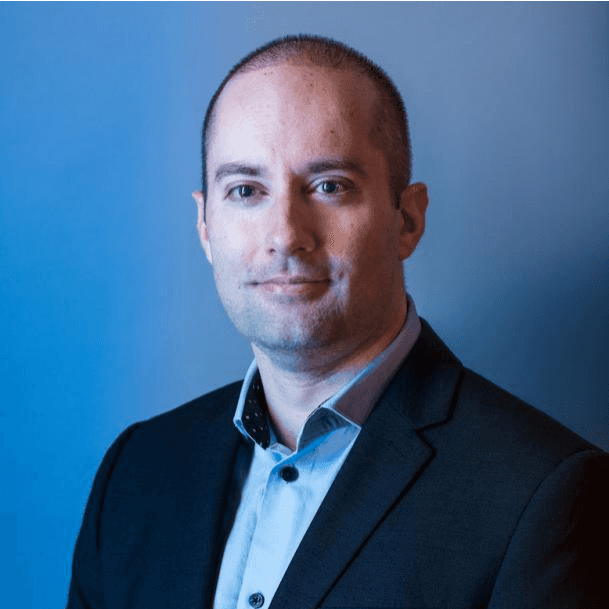
Roman Bauer, Ph.D.
Roman received his Bachelor's and Master's Degree in Computational Science and Engineering from ETH Zuerich, Switzerland. Afterwards, he did his doctoral studies at the Institute for Neuroinformatics (INI) at ETH Zürich and University of Zürich, working on simulations of cortical development. He then joined Newcastle University in September 2013 as a postdoctoral research associate and afterwards started his MRC fellowship project in September 2016 as an independent principal investigator. In June 2018 he took up an EPSRC UKRI Innovation Fellowship at the School of Computing and a joint affiliation with the Institute of Genetic Medicine, both at Newcastle University. In August 2020 he then became a lecturer at the Department of Computer Science, University of Surrey.
Title of Speech: How to Grow a Brain: Mechanistic Simulation of Neural Connectivity Formation
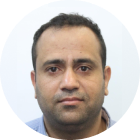
Ammar Alazab, Ph.D.
Ammar Alazab is a Senior Cybersecurity Lecturer at Melbourne Institute of Technology, with a wealth of industry experience. His expertise extends beyond academia, as he has a strong background in the cybersecurity industry. This practical experience enriches his teaching and research, providing valuable real-world insights to his students. His work focuses on cyber security, digital forensics of computer systems, and cybercrime detection and prevention. With numerous published articles and over 50 research papers in top-tier journals and conferences, Alazab is a prominent figure in the cybersecurity field. His remarkable contributions have led him to secure research grants amounting to over 1 million from reputed industry players, further validating the practical significance of his work.
Title of Speech: Privacy-Preserving Intrusion Detection: Empowering Security with Federated Learning
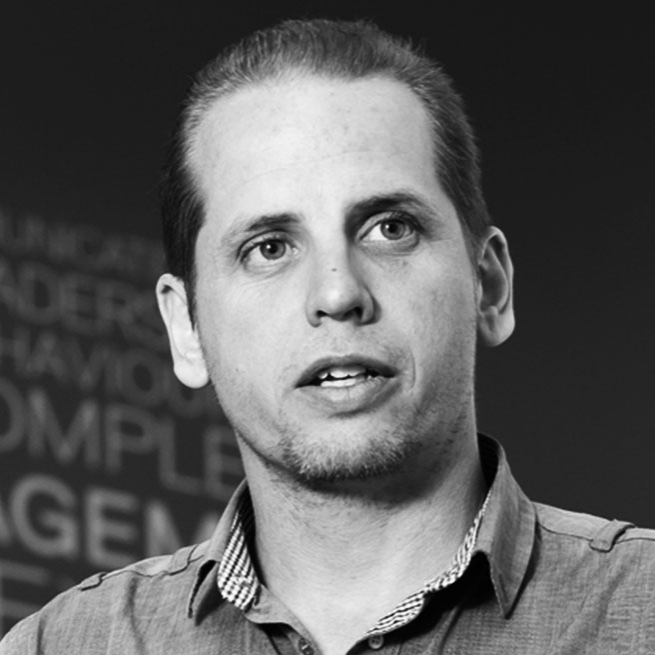
Michael Harre, Ph.D.
Dr. Harre's research combines the psychology of decision theory with artificial intelligence to understand complex social dynamics. Currently he's working on how to replicate a 'theory of mind' for AI and how AI communities co-create knowledge and can cooperate with humans. More generally Dr. Harre is interested in the psychology of AI: how can we use what we know of the mesoscopic scale of human cognition to advance our understanding of machine intelligence, i.e. beyond what is being done at the micro-scale of modelling neurons. He also has extensive experience in agent based modelling, economics, big data analytics, and game non-linear dynamics.
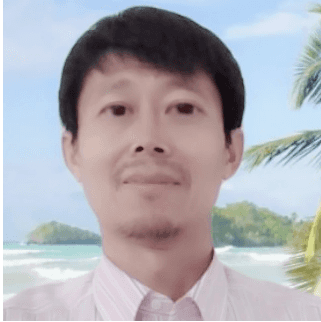
Alan Wang, Ph.D.
Alan Wang is a principal investigator and Associate Professor at Auckland University. He has more than ten years of research experience in bioengineering informatics and integrated medicine, especially in advancing the role of medical informatics in health care. His research interests include bioengineering, signal processing, data informatics, machine learning, and biomedical statistics and simulation. He has developed advanced data analytics methods for intelligent health and personalized diagnosis and prognosis based on signal processing and machine learning theories. He has experience analyzing huge cohorts of data with applications of early diagnosis, disease understanding, and effective treatment of patients with different disorders. He serves as an Editorial Board Member and an Active Reviewer for several international journals.
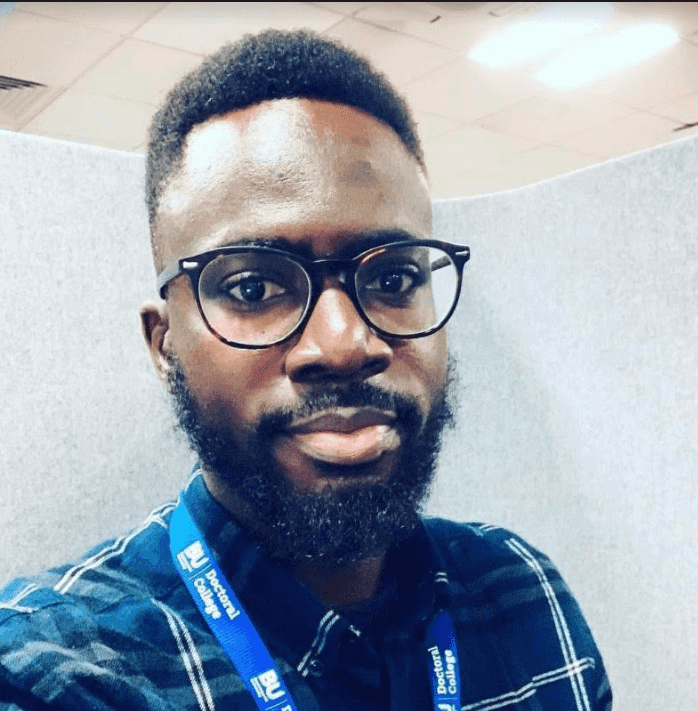
Festus Adedoyin, Ph.D.
Festus is a Fellow of the Higher Education Academy, a Chartered Management and Business Educator, and a Senior Lecturer at the Department of Computing and Informatics, Bournemouth University, U.K. His current research interest is in the application of Machine and Deep Learning, and Econometrics tools to research stories in Energy and Climate Change as well as Digital Health. Festus has contributed to several thematic areas in the UN's Sustainable Development Goals, and he is open to international research collaborations. Festus has taught at both postgraduate and undergraduate levels the following modules: Business Information Technology (Quality Assurer), Data Management (Quality Assurer), Economics of Information Security, Smart Systems (teaching team), and Research methods and Professional Issues.
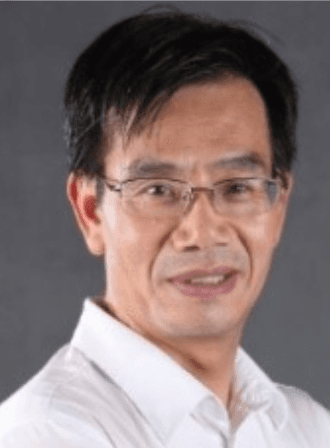
Shuang-Hua Yang, Ph.D.
Shuang-Hua Yang received his BSc degree in instrument and automation and the MSc degree in process control from the China University of Petroleum (Huadong), Beijing, China, in 1983 and 1986, respectively, and the PhD degree in intelligent systems from Zhejiang University, Hangzhou, China, in 1991. He is currently professor and the Head of Department of Computer Science at University of Reading, UK, and the Director of the Shenzhen Key Laboratory of Safety and Security for Next Generation of Industrial Internet, based at the Southern University of Science and Technology, China. His research interests include cyber-physical systems, the Internet of Things, wireless network-based monitoring and control, and safety-critical systems. He is a fellow of IET and InstMC, UK, and a senior member of IEEE. He was awarded a Doctor of Science, degree, a higher doctorate degree, in 2014 from Loughborough University to recognize his scientific achievement in his academic career. He was awarded the 2010 Honeywell Prize by the Institute of Measurement and Control in the UK in recognition of his contribution to home automation research. He is also an Associate Editor of IET Cyber-Physical Systems: Theory and Applications.
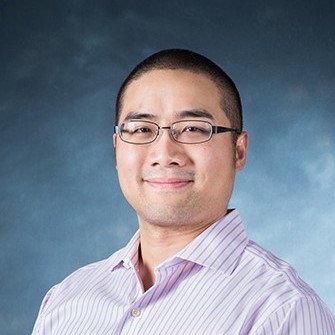
Lewis Tseng, Ph.D.
Lewis Tseng is an associate professor at Clark University. His research is driven by making distributed systems (e.g., cloud computing and crypto) trustworthy. His research group designs and builds high-performance fault-tolerant distributed systems, by identifying principles for distributed coordination primitives. Prior to joining Clark, Tseng was an assistant professor at Boston College. Before that, he was with Toyota Info Technology Center, U.S.A. During the time, he successfully filed three patents on vehicular clouds. Tseng received the prestigious National Science Foundation CAREER award (2023). He has won the best paper award at SSS 2017. He has also won the Illumination Award 2022 and Teaching-Advising-Mentoring grant 2022-23 at Boston College. He earned his doctorate from University of Illinois at Urbana-Champaign.
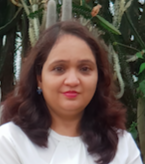
Sameena Naaz, Ph.D.
Dr. Sameena Naaz is working as an Associate Professor in the Department of Computer Science and Engineering, Jamia Hamdard, New Delhi, India. She has a total experience of more than 21 years with one-year overseas experience. She received her B.Tech (Computer Engg.) from Aligarh Muslim University, in 1998 and the M.Tech. Degree in Electronics with Specialization in Communication and Information Systems from Aligarh Muslim University, in 2000. She completed her Ph. D from Jamia Hamdard in the field of distributed systems in year 2014. Sameena Naaz has published several research articles in reputed International Journals and Proceedings of reputed International conferences published by IEEE and Springer. Her research interests include Distributed Systems, Cloud Computing, Big Data, Machine Learning, Data Mining and Image Processing.
She is a senior member of IEEE and life member of Indian Society for Technical Education (ISTE) and a member of International Association of Computer Science and Information Technology (IACSIT). She serves as reviewer of various Journals of International repute. She is also member of program committee of various reputed International conferences. She is in editorial Board of some reputed Intentional Journals in Computer Sciences.
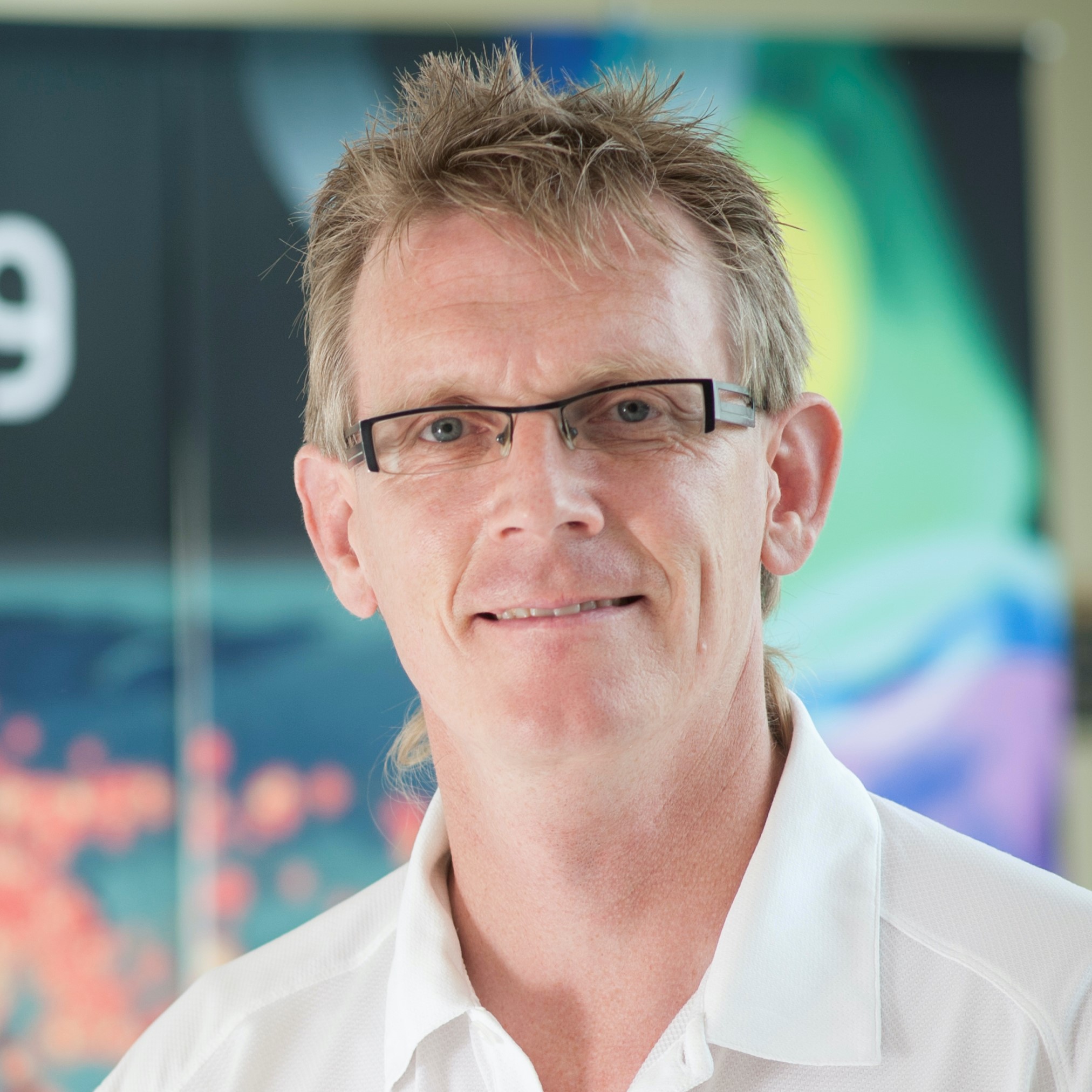
Gerhard Klimeck, Ph.D.
Gerhard Klimeck is an Electrical and Computer Engineering faculty at Purdue University and leads two research centers in Purdue's Discovery Park. He helped to create nanoHUB.org which now serves over 2.0 million users globally. Previously he worked with Texas Instruments and NASA/JPL/Caltech. His research interest is in computational nanoelectronics, high performance computing, and data analytics. NEMO, the nanoelectronic modeling software built in his research group established the state-of-the-art in atomistic quantum transport modeling. NEMO is now being used at Intel for advanced transistor designs and commercialized. He published over 525 printed scientific articles that resulted in over 20,000 citations and an h-index of 69 in Google scholar. He is a fellow of the Institute of Physics (IOP), a fellow of the American Physical Society (APS), a Fellow of IEEE, a Fellow of AAAS and a Fellow of the Alexander von Humboldt Stiftung (Germany). Together with physicist Michelle Simmons of the University of New South Wales, he "devised a way to make a single-atom transistor", which ranked #29 top invention of 2013 by Discover Magazine. In 2020 the nanoHUB team was awarded a R&D 100 award for "nanoHUB: Democratizing Learning and Research". In Oct. 2020 he was elected Fellow of American Association for the Advancement of Science (AAAS), "For the quantum mechanical modeling theory and simulation tools to design today's nanotransistors and for leadership of the global nanotechnology community as Director of nanoHUB."
Title of Speech: nanoHUB.org - always "on" :New Paradigms in Global Scientific Knowledge Transfer, Publishing, and Assessment
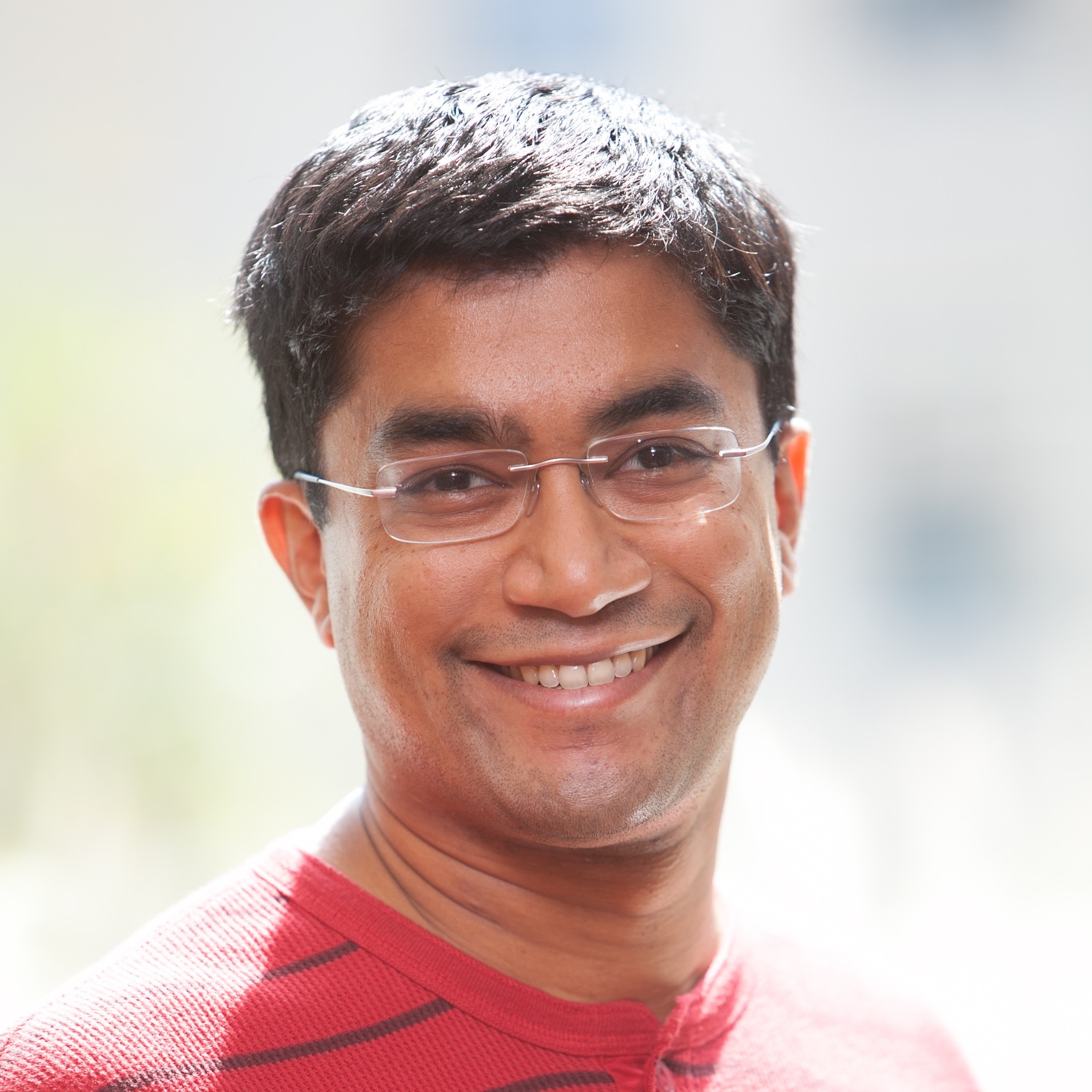
Venkatesan Guruswami, Ph.D.
Venkatesan Guruswami (Venkat) is a Professor in the Computer Science Department at Carnegie Mellon University, and the director of its Ph.D. program. He received his Ph.D. from MIT in 2001. His research interests include error-correcting codes, approximate optimization, and computational complexity. Venkat serves on the editorial board of the Journal of the ACM and was till recently the Editor-in-Chief of the ACM Transactions on Computation Theory. He was program committee chair for the 2015 Symposium on Foundations of Computer Science (FOCS). Venkat is a Fellow of the ACM and the IEEE. He was an invited speaker at the 2010 International Congress of Mathematicians. His other honors include the Simons Investigator award, EATCS Presburger Award, Packard and Sloan Fellowships, a Google Faculty Research Award, the ACM Doctoral Dissertation Award, and an IEEE Information Theory Society Paper Award.
Title of Speech: Erasure Codes for Local Repair in Distributed Storage
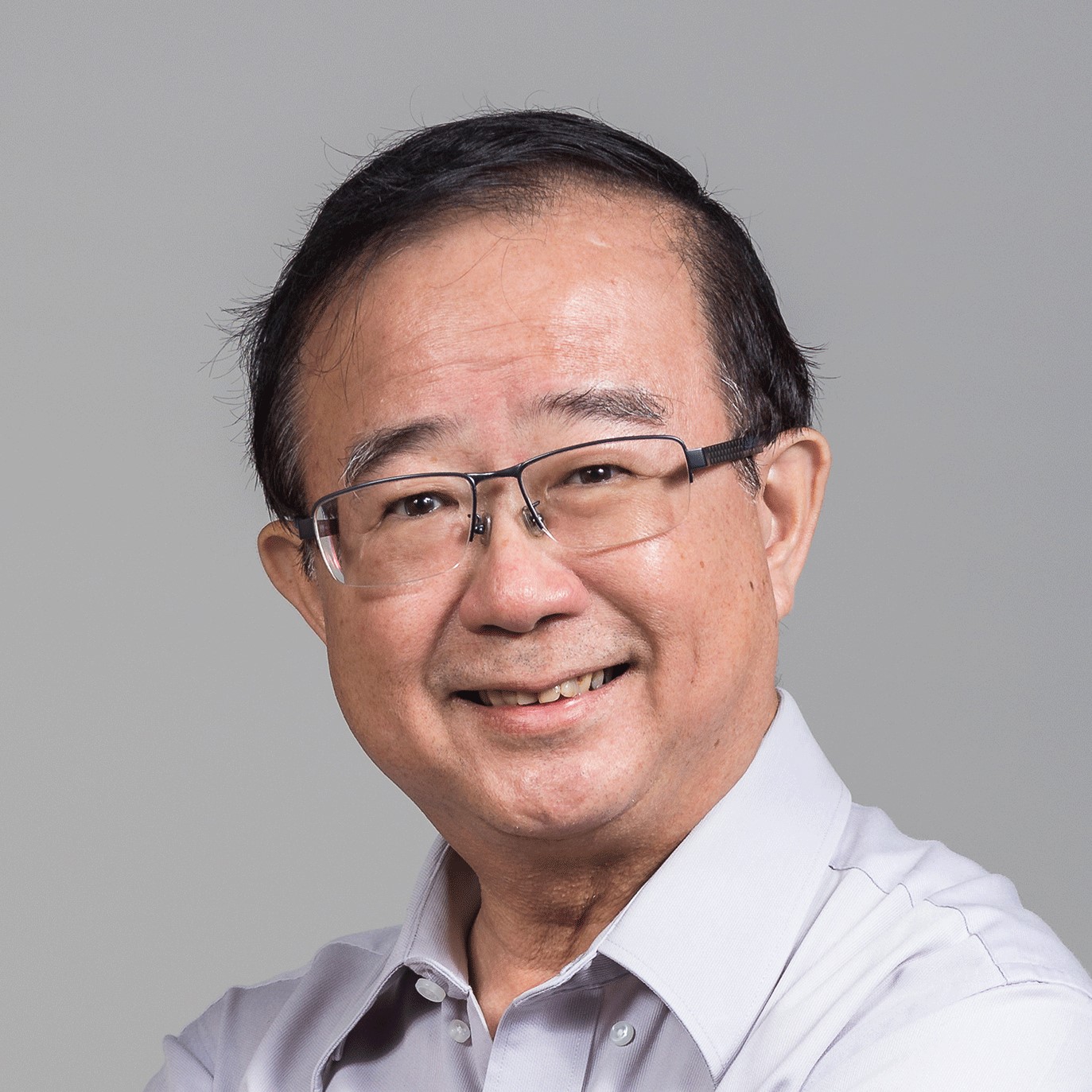
Alex Siow, Ph.D.
Prof Alex Siow is currently Professor (Practice) in the department of Information Systems and Analytics of the School of Computing, National University of Singapore and a teaching staff of the Advanced Computing for Executives, an Executive Education Centre. He was former director of the Centre for Health Informatics. Alex started his career as a Structural Engineer in the HDB in 1981 and appointed the Chief Information Officer in 1989. In 2003, Alex joined the private sector and became the Senior Vice-President in StarHub Ltd. He held various portfolios including Head, Business Market, CIO and Head, Enterprise Risk Management. Alex is currently Chairman of Toffs Technologies Pte Ltd, an independent director of Tee International Ltd. He is also a director in DART Consulting and Training Pte Ltd and Wesan Future Design Pte Ltd. He is a strategic Advisor to Nityo Infotech, Alibaba Cloud and U3 Infotech. Prof Alex's expertise is in IT Governance, Enterprise Risk Management, Management of Emerging Technology and Technology Roadmap Planning. He is also active in the Fintech and blockchain community.
Title of Speech: Data science and AI/ML in healthcare and Medtech - an industry perspective
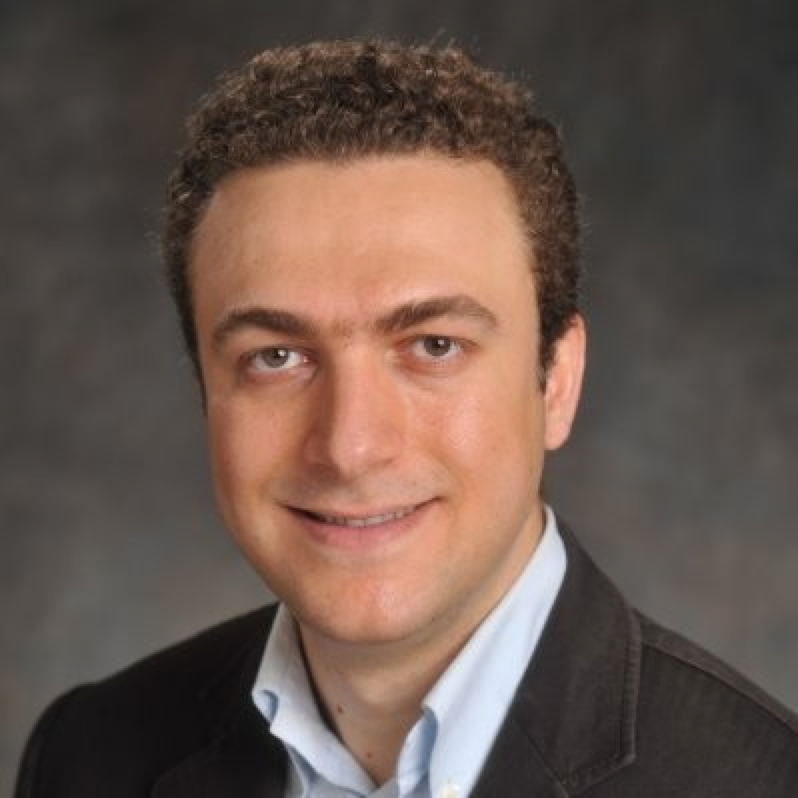
Aydogan Ozcan, Ph.D.
Dr. Aydogan Ozcan is the Chancellor's Professor and the Volgenau Chair for Engineering Innovation at UCLA and an HHMI Professor with the Howard Hughes Medical Institute, leading the Bio- and Nano-Photonics Laboratory at UCLA School of Engineering and is also the Associate Director of the California NanoSystems Institute. Dr. Ozcan is elected Fellow of the National Academy of Inventors (NAI) and holds 43 issued patents and >20 pending patent applications and is also the author of one book and the co-author of >700 peer-reviewed publications in major scientific journals and conferences. Dr. Ozcan is the founder and a member of the Board of Directors of Lucendi Inc., Hana Diagnostics, Pictor Labs, as well as Holomic/Cellmic LLC, which was named a Technology Pioneer by The World Economic Forum in 2015. Dr. Ozcan is also a Fellow of the American Association for the Advancement of Science (AAAS), the International Photonics Society (SPIE), the Optical Society of America (OSA), the American Institute for Medical and Biological Engineering (AIMBE), the Institute of Electrical and Electronics Engineers (IEEE), the Royal Society of Chemistry (RSC), the American Physical Society (APS) and the Guggenheim Foundation. http://innovate.ee.ucla.edu/welcome.html http://org.ee.ucla.edu
Title of Speech: Diffractive Optical Neural Networks Designed by Deep Learning
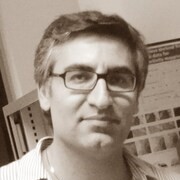
Kourosh Khoshelham, Ph.D.
Kourosh Khoshelham is an Associate Professor at the Department of Infrastructure Engineering of the University of Melbourne. He received his PhD in photogrammetry and laser scanning from the Hong Kong Polytechnic University in 2004, and held Assistant Professor positions at Delft University of Technology and University of Twente before joining the University of Melbourne in 2015. Kourosh has published extensively on topics related to mapping, positioning, and 3D computer vision. He serves on the editorial board of several international journals, including Sensors and Infrastructures. He is also involved in the International Society for Photogrammetry and Remote Sensing (ISPRS), where he serves as the Co-Chair of Working Group IV/5 and leads the ISPRS Benchmark on Indoor Modelling.
Title of Speech: Lidar, HD Maps, and Autonomous Driving
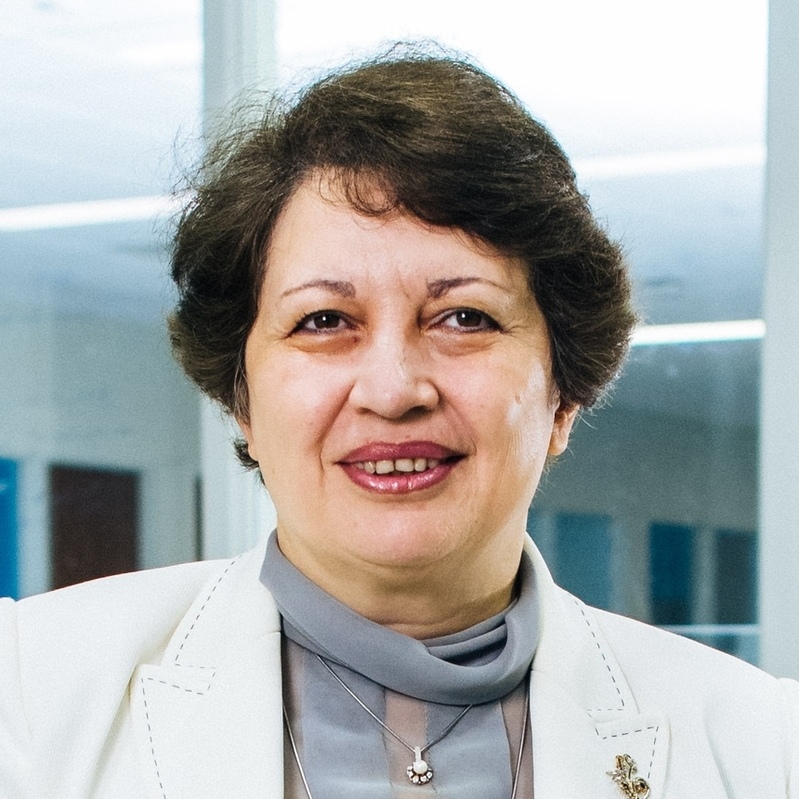
Naira Hovakimyan, Ph.D.
Naira Hovakimyan received her MS degree in Theoretical Mechanics and Applied Mathematics in 1988 from Yerevan State University in Armenia. She got her Ph.D. in Physics and Mathematics in 1992 from the Institute of Applied Mathematics of Russian Academy of Sciences in Moscow. She is currently a W. Grafton and Lillian B. Wilkins Professor of Mechanical Science and Engineering at UIUC. In 2015 she was named inaugural director for Intelligent Robotics Lab of Coordinated Science Laboratory at UIUC. She has co-authored two books, eleven patents and more than 450 refereed publications. She was the recipient of the SICE International scholarship for the best paper of a young investigator in the VII ISDG Symposium (Japan, 1996), the 2011 recipient of AIAA Mechanics and Control of Flight Award, the 2015 recipient of SWE Achievement Award, the 2017 recipient of IEEE CSS Award for Technical Excellence in Aerospace Controls, and the 2019 recipient of AIAA Pendray Aerospace Literature Award. In 2014 she was awarded the Humboldt prize for her lifetime achievements. She is Fellow and life member of AIAA and a Fellow of IEEE. She is cofounder and chief scientist of IntelinAir. Her work in robotics for elderly care was featured in the New York Times, on Fox TV and CNBC. Her research interests are in control, estimation and optimization, autonomous systems, game theory and their broad applications across various industries.
Title of Speech: Safe Learning and Control with 𝓛1-Adaptation

Brian A. Barsky, Ph.D.
Prof. Brian Barsky is a Fellow of the American Academy of Optometry (F.A.A.O.), a UC Berkeley Presidential Chair Fellow, a Warren and Marjorie Minner Faculty Fellow in Engineering Ethics and Professional/Social Responsibility, and an ACM Distinguished Speaker. Dr. Barsky was a recipient of an IBM Faculty Development Award and a National Science Foundation Presidential Young Investigator Award. He developed Vision-Realistic Rendering using three-dimensional rendering techniques for the computer generation of synthetic images to simulate the vision of specific individuals based on measuring the wavefront aberrations of their eyes. This led to developing a vision-correcting display to enable specific viewer to see it in sharp focus directly without using any corrective eyewear such as eyeglasses or contact lenses. This was selected by Scientific American as one of 2014's ten "World Changing Ideas."
Title of Speech: Why its MCAS Computer System Should Not Exist
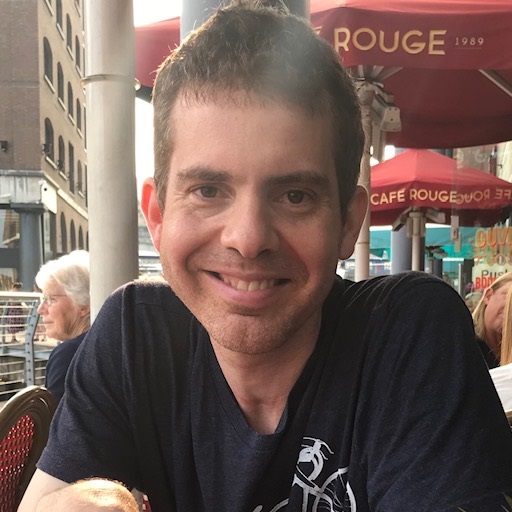
David P. Woodruff, Ph.D.
David Woodruff has been an associate professor at Carnegie Mellon University in the Computer Science Department since 2017. Before that he was a research scientist at the IBM Almaden Research Center, which he joined in 2007 after completing his Ph.D. at MIT in theoretical computer science. His research interests include data stream algorithms, distributed algorithms, machine learning, numerical linear algebra, optimization, sketching, and sparse recovery. He is the recipient of the 2020 Simons Investigator Award, the 2014 Presburger Award, and Best Paper Awards at STOC 2013, PODS 2010, and PODS, 2020. At IBM he was a member of the Academy of Technology and a Master Inventor.
Title of Speech: A Very Sketchy Talk

Craig Knoblock, Ph.D.
Craig Knoblock is the Keston Executive Director of the Information Sciences Institute, Research Professor of both Computer Science and Spatial Sciences, and Vice Dean of Engineering at the University of Southern California. He received his Bachelor of Science degree from Syracuse University and his Master's and Ph.D. from Carnegie Mellon University in computer science. His research focuses on techniques for describing, acquiring, and exploiting the semantics of data. He has worked extensively on source modeling, schema and ontology alignment, entity and record linkage, data cleaning and normalization, extracting data from the Web, and combining all of these techniques to build knowledge graphs. He has published more than 400 journal articles, book chapters, and conference and workshop papers on these topics and has received 7 best paper awards on these papers. Dr. Knoblock is a Fellow of the Association for the Advancement of Artificial Intelligence (AAAI), a Fellow of the Association of Computing Machinery (ACM), past President and Trustee of the International Joint Conference on Artificial Intelligence (IJCAI), and winner of the Robert S. Engelmore Award.
Title of Speech: Building Knowledge Graphs to Solve Societal Problems: Applications, Challenges, and Solutions
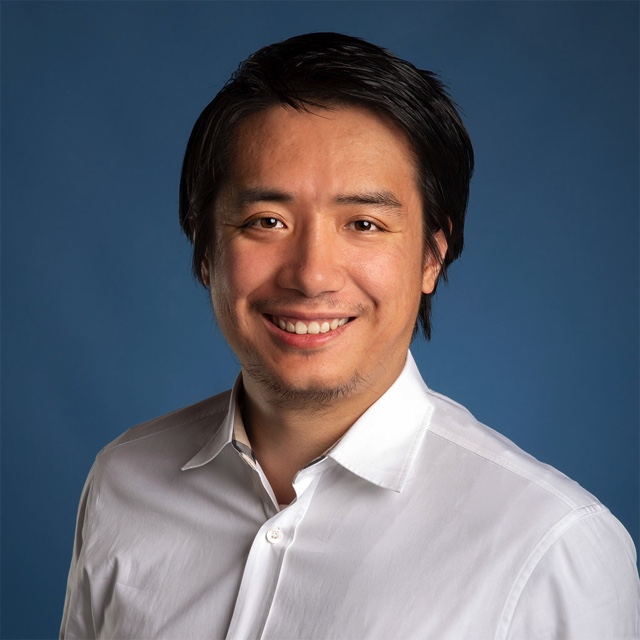
Aaron Li, Ph.D.
Aaron is the founder of Qokka, an AI startup that helps companies zero in on customers and communities using communication data at large scale. Previously, Aaron was a founding engineering lead at Scaled Inference, where he created one of the first generalized autonomous optimization platforms for commercial use. Aaron briefly worked at Google AI, NICTA, and CMU where he created and perfected one of the first constant-time, large scale topic modeling algorithms for industrial use. Which became widely adopted.
Aaron won multiple awards in AI, including KDD Best Research Paper Award for his contribution in topic modeling and machine learning. Aaron received a research MSc in Language Technologies at Carnegie Mellon University, and BSc (1st class honors) at Australian National University in Computer Science, Computer Science, Mathematics, and Statistics. Aaron has lived in Beijing, New Zealand and Australia, before he moved to and settled in the US.
Title of Speech: NLP on Cryptocurrency Discussion Data, A Few Fun Experiments
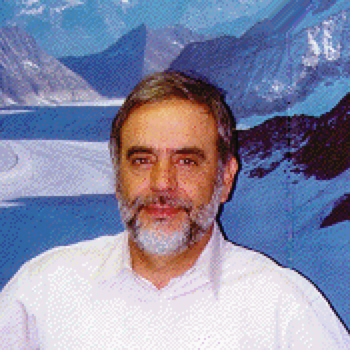
Carlo Zaniolo, Ph.D.
After several years with industrial research labs, Dr. Zaniolo returned to his alma mater, UCLA, as a computer science professor and first occupant of the Norman E. Friedmann Chair in Knowledge Science. Professor Zaniolo is the author, or coauthor, of more than 340 peer-reviewed publications. Carlo served as the program chair or co-chair of major database conferences and associate editor of prestigious journals. At UCLA is serving as the director of the Web Information System Laboratory and co-director of Scalable Analytics Institute (ScAI).
Title of Speech: Scalability and Performance for Big Data Algorithms by Logic+Aggregates
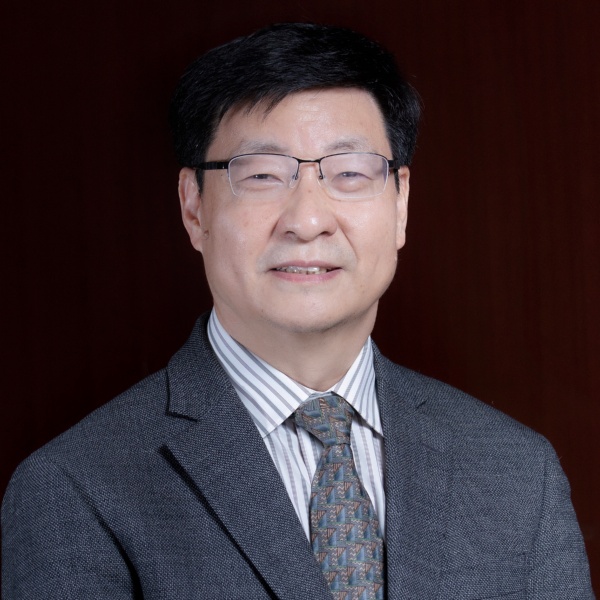
Chengzhong Xu, Ph.D.
Dr. Cheng-Zhong Xu, IEEE Fellow, is the Dean of the Faculty of Science and Technology, University of Macau, Macao SAR, China and a Chair Professor of Computer Science of UM. He is also a Chief Scientist of a key project on "Internet of Things for Smart City" of Ministry of Science and Technology of China and a key project on "Intelligent Driving" of Macau SAR. He was a Chief Scientist of Shenzhen Institutes of Advanced Technology (SIAT) of Chinese Academy of Sciences and the Director of Institute of Advanced Computing and Digital Engineering. Prior to these, he was in the faculty of Wayne State University, USA for 18 years. Dr. Xu's research interest is mainly in the areas of parallel and distributed systems, cloud and edge computing, and data-driven intelligent applications. He has published over 400 peer-reviewed papers on these topics and awarded more than 120 patents. Dr. Xu was the Chair of IEEE Technical Committee of Distributed Processing. He received his B.S. and M.S. degrees in Computer Science from Nanjing University and his Ph.D. from the University of Hong Kong in 1993.
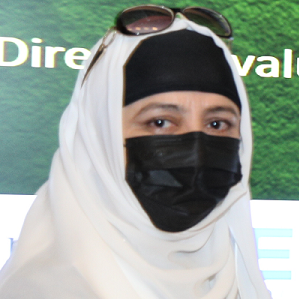
Tanzila Saba, Ph.D.
Prof. Tanzila Saba earned her PhD in document information security and management from the Faculty of Computing, Universiti Teknologi Malaysia (UTM), Malaysia in 2012. She won the Best Student Chancellor Award in the Faculty of Computing UTM in 2012. Currently, she is serving as an Associate Chair of the Information Systems Department in the College of Computer and Information Sciences at Prince Sultan University Riyadh KSA. In recent years, her primary research focus is medical imaging, pattern recognition, data mining, MRI analysis, and Soft-computing. She has above 200 hundred publications that have around 9400 citations with an h-index of 60. Her most publications are in biomedical research published in ISI/SCIE indexed. Due to her excellent research achievements, she was included in Marquis Who's Who (S & T) 2012." Currently, she is the editor and reviewer of high reputed journals and on the panel of TPC of international indexed conferences. She is skilled with ABET & NCAAA quality assurance on the accreditation side. She is a senior member of IEEE. Prof.Tanzila is the leader of the Artificial Intelligence & Data Analytics Research Lab at Prince Sultan University and an active professional member of ACM, AIS and IAENG organizations. She is the PSU WiDS (Women in Data Science) ambassador at Stanford University. She received the Best Researcher award for four consecutive years at Prince Sultan University and has been nominated as a Research Professor since September 2019. She has been invited as a keynote speaker at numerous international forums and conferences. She has been positioned among the world's top 2% of scientists for the consecutive two years (2020 & 2021), by a research study conducted by Stanford University and Elsevier. She is the only female researcher in KSA, who has been listed in Guide2research since 2019-2022.
Title of Speech: Secured Big Data Modern Management for Decision-Oriented Medical Systems Using Internet of Things
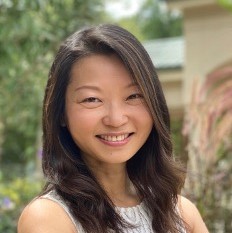
Li Xiong, Ph.D.
Li Xiong is a Professor of Computer Science and Biomedical Informatics at Emory University. She held a Winship Distinguished Research Professorship from 2015-2018. She has a Ph.D. from Georgia Institute of Technology, an MS from Johns Hopkins University, and a BS from the University of Science and Technology of China. She and her research lab, Assured Information Management and Sharing (AIMS), conduct research on algorithms and methods at the intersection of data management, machine learning, and data privacy and security, with a recent focus on privacy-preserving and robust machine learning. She has published over 160 papers and received six best paper (runner up) awards. She has served and serves as associate editor for IEEE TKDE, IEEE TDSC, and VLDBJ, general co-chair for ACM CIKM 2022, program co-chair for IEEE BigData 2020 and ACM SIGSPATIAL 2018, 2020, program vice-chair for ACM SIGMOD 2022, and IEEE ICDE 2020. Her research is supported by federal agencies including NSF, NIH, AFOSR, PCORI, and industry awards including Google, IBM, Cisco, AT&T, and Woodrow Wilson Foundation. She is an IEEE fellow and ACM distinguished member.